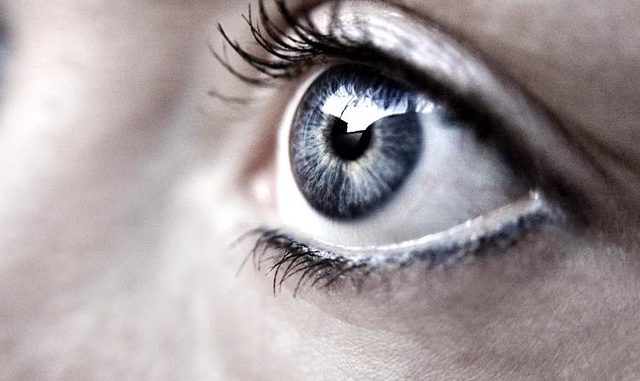
It is no longer a secret that the sun’s ultraviolet radiation can be extremely harmful to our skin, contributing to its premature aging. Too few of us know, however, that these radiation can affect our eye health. That is why it is extremely important to protect them.
According to experts, the eyes occupy less than 2% of the surface of the whole body, but they represent the only system of organs that allows the penetration of visible light into the depth of the human body. Throughout our evolution, several special mechanisms have evolved to protect the eye, this sensitive body, against the harmful effects of solar radiation.
The human eye is well protected by the orbital margin, the eyebrows and the eyelashes, but even so, these structures have limited use in terms of protection against ultraviolet radiation, under extreme conditions.
In the eyes, ultraviolet radiation damages multiple structures, studies show. These UV rays carry more energy than visible sunlight, and scientists say that exposure to ultraviolet rays causes direct cell destruction, which plays an important role in cancer development. Moreover, the researchers discuss the role of ultraviolet radiation in oxidative stress, in relation to certain non-cancerous ocular pathologies, such as cataracts, glaucoma, age-related macular degeneration, certain pathologies in the cornea.
An alarm signal that researchers are making is that excessive exposure to ultraviolet radiation throughout life can greatly contribute to the increase of oxidative stress in various ocular tissues and, therefore, UV radiation leads to the development of serious pathologies in the human eye.
Children are especially vulnerable to ultraviolet radiation, because of their larger pupils and because of a more transparent ocular environment, researchers say, reasoning that up to 80% of UV radiation exposure during a person’s life is a level that is reached before 18 years old.
How to properly protect your eyes?
Both researchers and ophthalmologists point out that the efficient and daily protection of sensitive tissues in the structure of our eyes is important. How can we protect ourselves? Wearing sunglasses, goggles that block UV radiation or special contact lenses that block UV radiation.
In addition, experts point out that these eye protection measures must be taken as early as possible, even at an early age, because we need to be aware that UV radiation can be extremely dangerous to the eyeball.
Here are some recommendations to consider, to protect your eyes from the sun:
Choose glasses that provide optimum protection, ie those that have lenses that block UV radiation. Wearing this type of glasses is a very important measure, to protect your delicate skin around the eyes, as well as to protect the eyeballs. Research has shown that spending many hours under the sun everyday, without protecting the eyes, increases the risk of developing certain eye conditions, so it is best to wear glasses.
UV Index: what it indicates and why you should check it
Experts say that ideal sunglasses should block between 99% and 100% of UVA and UVB radiation. Before buying the glasses, read the information on the label to make sure it offers added protection. If it is mentioned on the product label that it offers UV absorption up to 400 nanometers, this means that those glasses block at least 99% of UV radiation.
Don’t forget to always wear sunglasses even when you’re not exposed directly to the sun – Although this reduces UV exposure to some extent, your eyes will still be exposed to UV radiation reflected from buildings, streets or other surfaces.
Even if the contact lenses you wear block UV radiation, remember that you’ll still need sunglasses – Contact lenses that provide protection against UV rays protect or are a shield for only a small part of the eyeball, located below them. So by wearing sunglasses, you will protect these delicate tissues that the contact lenses do not cover, as well as the skin around the eyes.



Leave a Reply